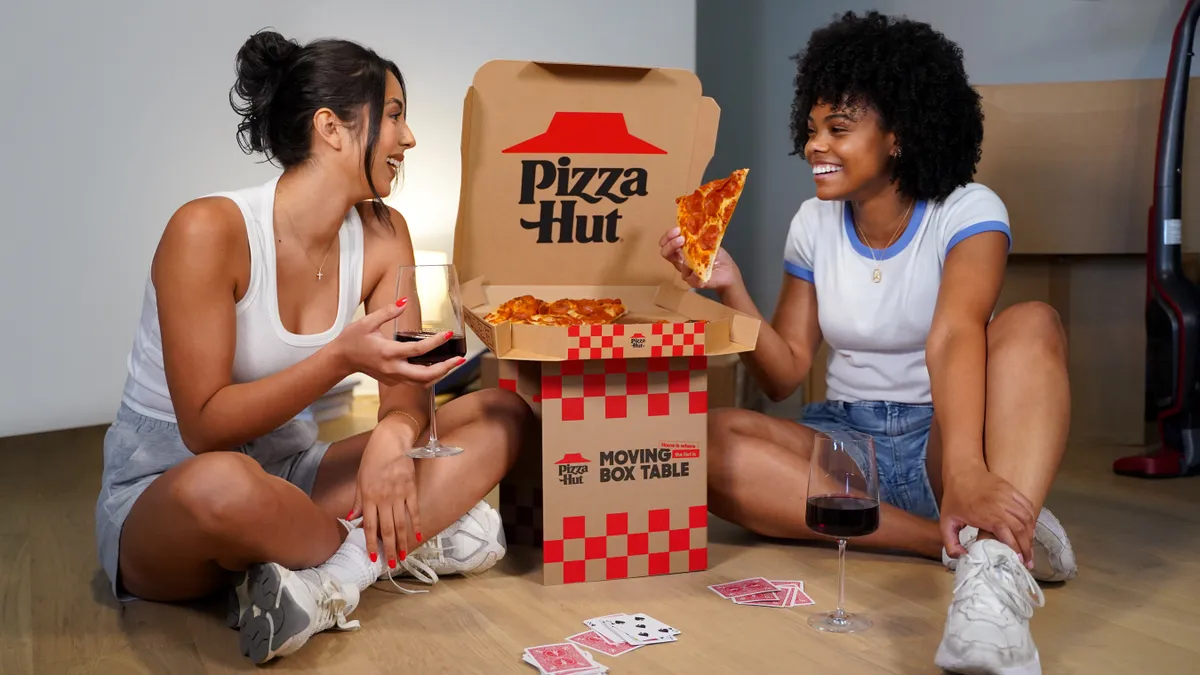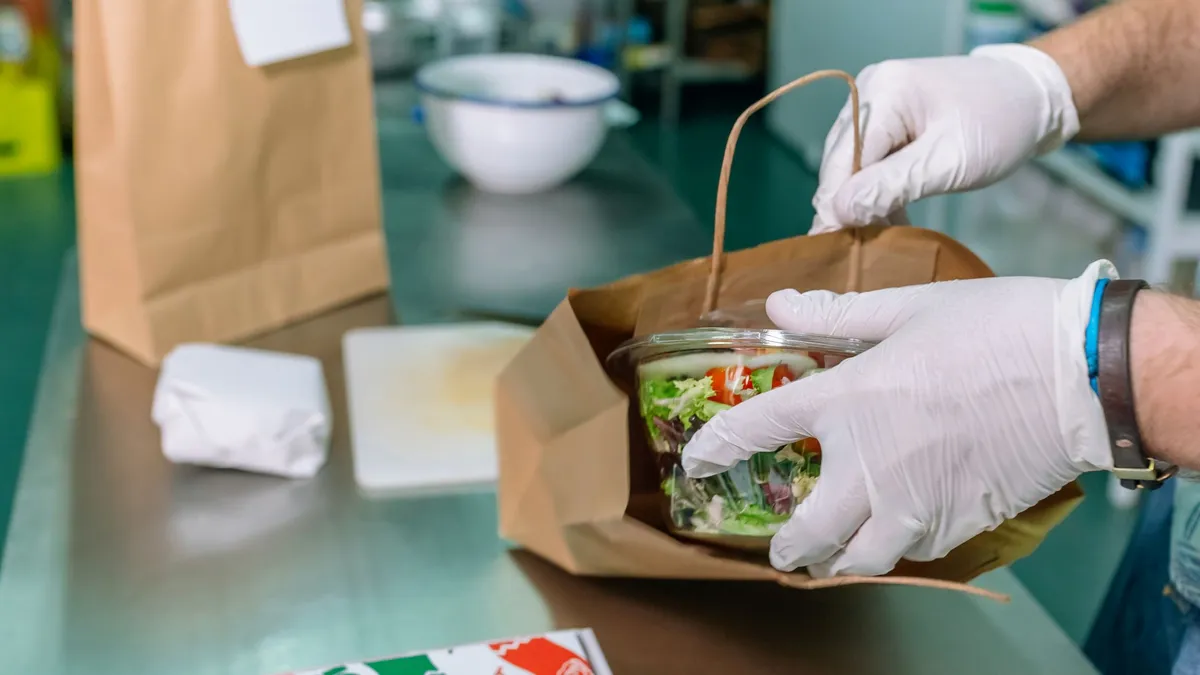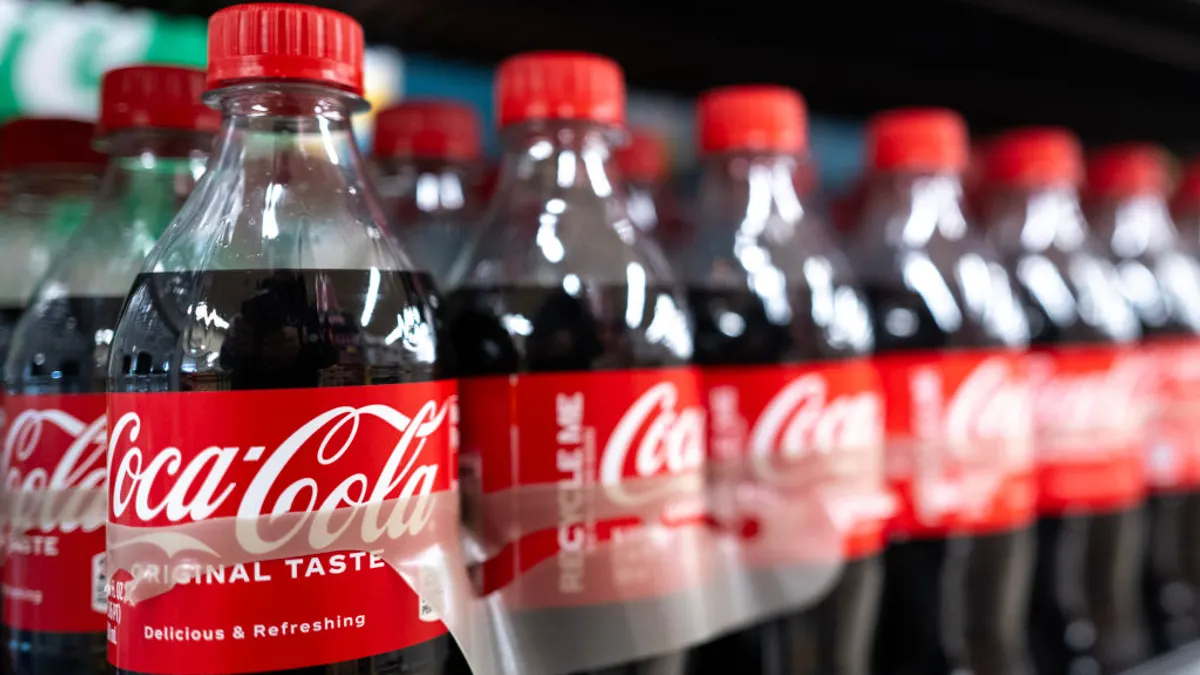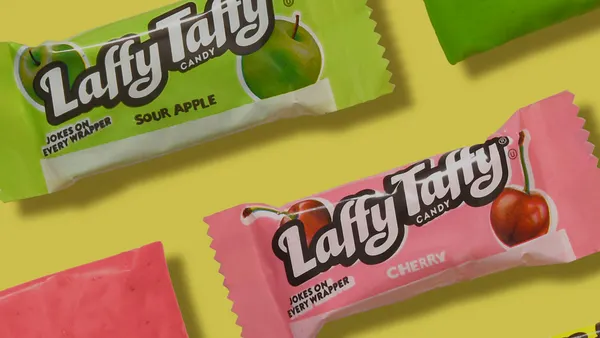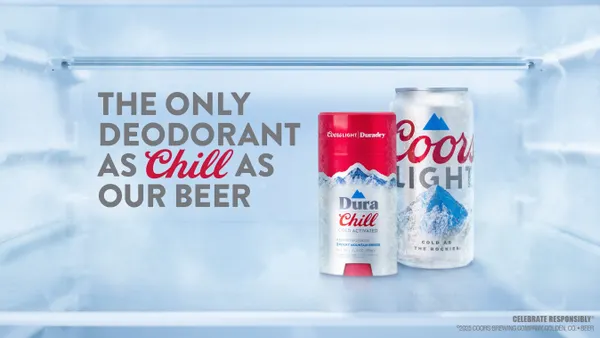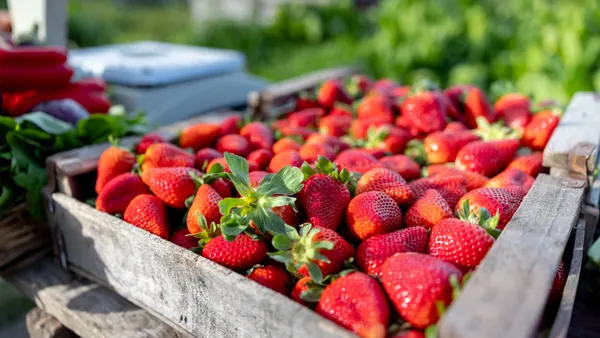Companies constantly innovate with technology and redesign their packaging to get better performance, improve marketability and enhance sustainability. Here’s a look at four new or redesigned packaging solutions on Packaging Dive’s radar.
Tabling the issue
Pizza Hut launched what it calls the Moving Box Table, a specialty box that transforms into a miniature table. In a limited edition marketing play, the company is targeting the product toward people who are moving and says it provides a practical and “tasty solution for moving woes.”
A corrugated structure can be folded into a base that supports the pizza and serves as a tabletop. Pizza Hut’s own July survey of more than 1,000 American adults discovered that 87% of respondents reported ordering pizza during a move, and 79% had to eat their pizza on the floor.
"Many can relate to the chaos that comes with moving, and the last thing you want to worry about is unpacking to enjoy a hard-earned meal at the end of a long day," said Pizza Hut Chief Marketing Officer Melissa Friebe in a news release. The corrugated product offers “not just a delicious pizza after a stressful moving day but somewhere easy and comfortable to enjoy it, too."
The Moving Box Table comes with orders of a large pizza in three cities: Charlotte, North Carolina; Dallas; and Orlando, Florida.
Compostable container collection
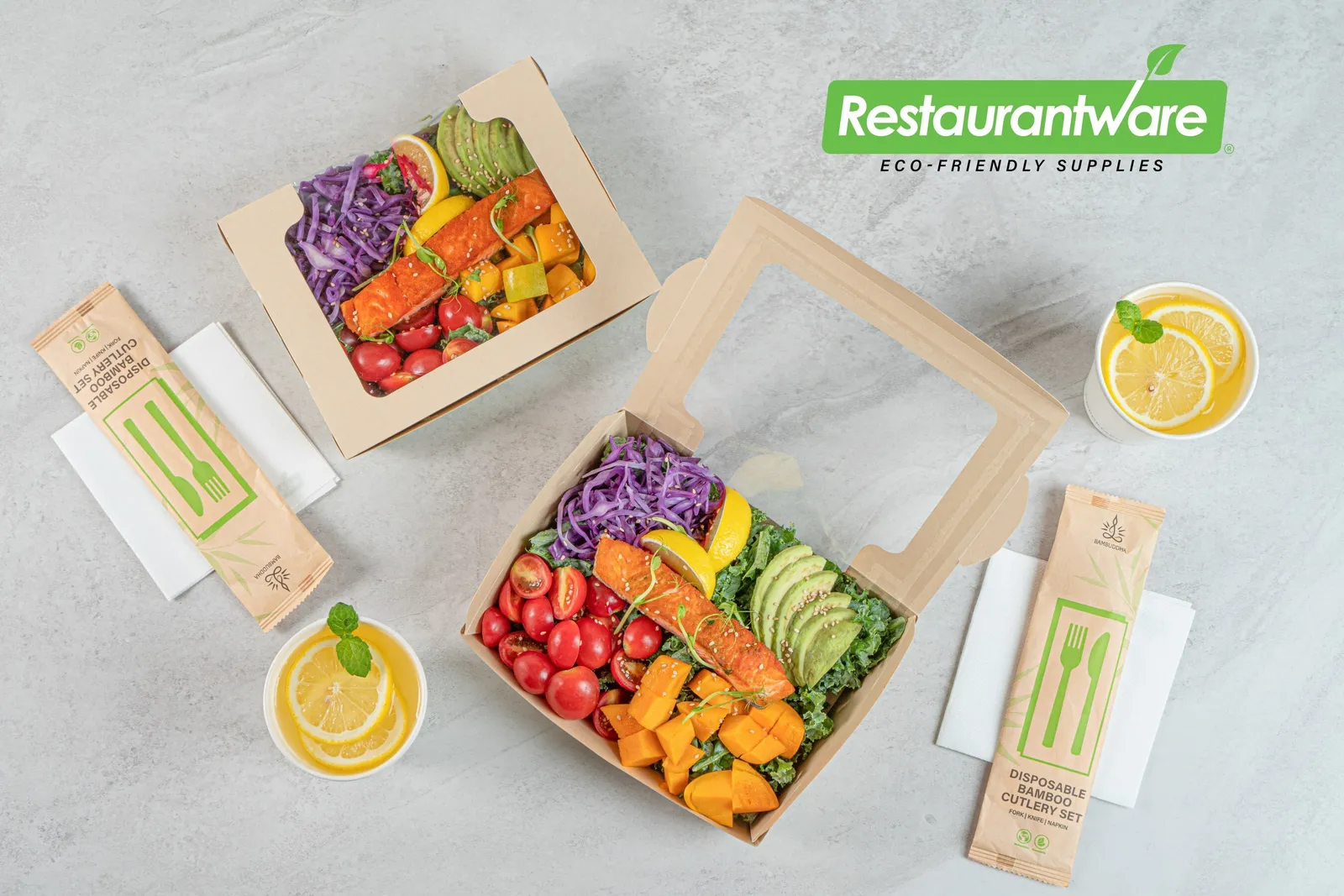
Restaurantware launched the Sustain collection, a new product line it says provides compostable alternatives for more than 40 commonly used food service packaging items. The line includes items such as hot and cold cups, boxes with windows, salad containers and taco containers.
Many of the products are made from bamboo and lined with the bioplastic PLA. Some products are manufactured from kraft paper and bioplastics besides PLA.
Most of the products are available now through Restaurantware’s website and through Amazon; more products will become available Oct. 15.
Not so dense after all
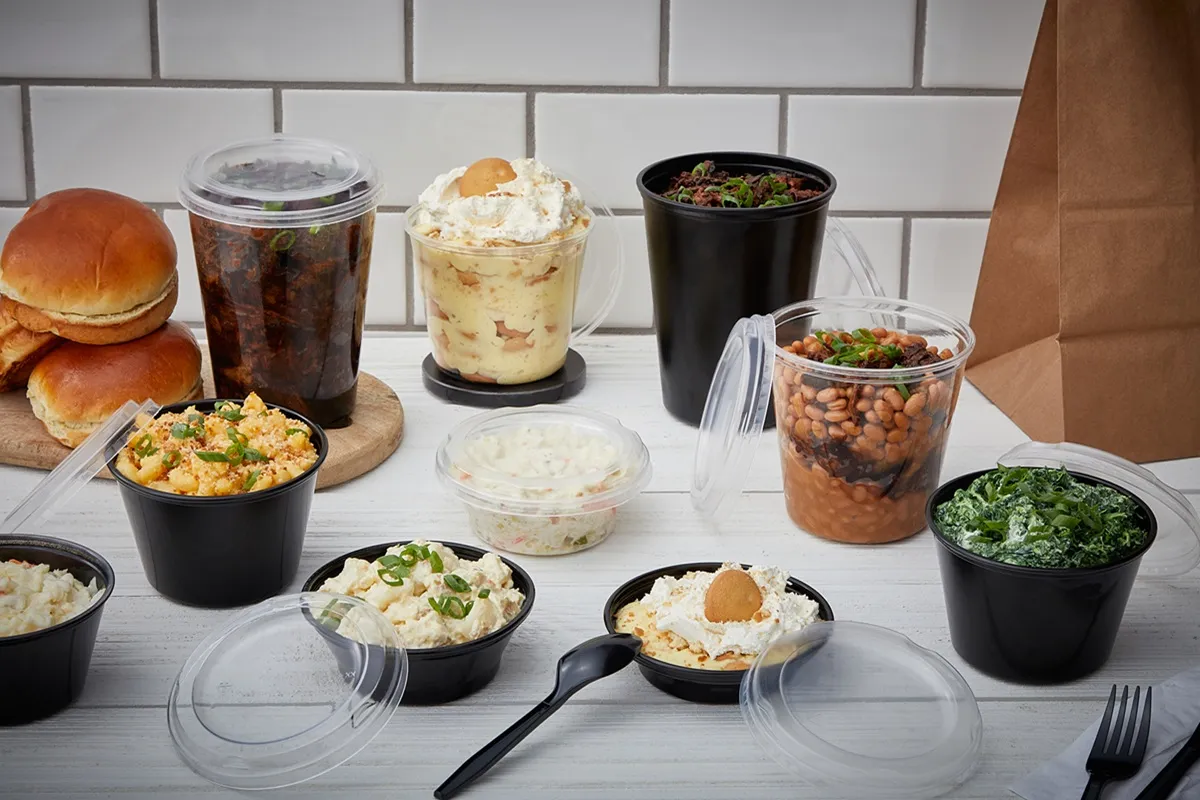
Pactiv Evergreen introduced Recycleware reduced-density polypropylene meat trays that it says are an alternative to polystyrene foam. The reduced-density containers can be recycled in communities where PP trays are accepted, the company said in a news release, and they meet design for recyclability criteria put forth by the Association of Plastic Recyclers.
“Our new Recycleware RDPP Meat Trays are vertically integrated, meaning they are extruded, thermoformed and padded at our facilities. They are processor grade and run well on existing overwrap equipment,” Eric Wulf, president of Pactiv Evergreen’s food and beverage merchandising business, said in the news release.
Vital variation
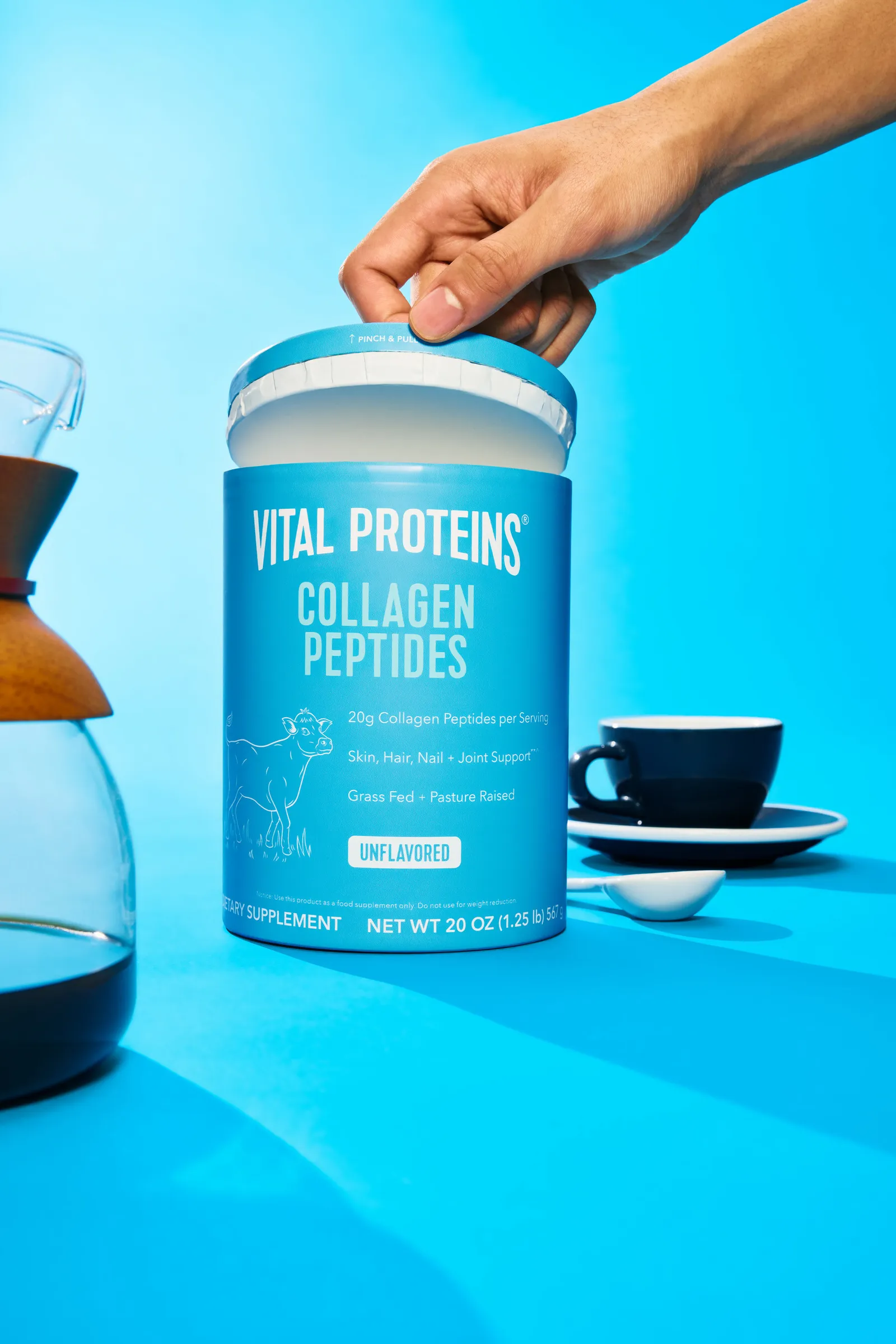
Vital Proteins is transitioning its collagen peptides out of plastic packaging and into an 80% paperboard canister. The company said in the news release that using this type of container is a first for the product category, and it’s the first significant packaging change in the brand’s 10-year history. The canister also is curbside recyclable, according to the company.
Vital Proteins designed and manufactured the new packaging itself, a spokesperson said via email. The new design includes a patented pull-tab lid that no longer requires twisting. It contains an internal waterproof polymer layer in addition to an outside water-based, water-resistant varnish to make the product moisture resistant.
The canister is the result of three years of research and development, and the product underwent extensive testing for stability and its ability to withstand leaks and spills. Certain varieties of the collagen peptides are currently available in the paper-based canister, and all of those products in Vital Proteins’ portfolio are slated to be in the canisters by 2026. In 2022, Vital Proteins started removing the plastic scoops from its containers and aims to completely eliminate them by the end of 2025.



